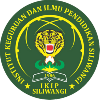INDONESIAN PRE-SERVICE ENGLISH TEACHERS’ EXPERIENCES OF TEACHING PRACTICUM DURING THE COVID-19 PANDEMIC AND THEIR TEACHER IDENTITY CONSTRUCTION
DOI:
https://doi.org/10.22460/project.v5i6.p1311-1324Abstract
Pre-service English teachers' identity construction as a teacher is complicated and influenced by several factors. The current study intends to investigate how Indonesian pre-service English teachers construct their teacher identities when performing the teaching practicum during the COVID-19 pandemic. The study employed a narrative inquiry to investigate pre-service teachers' experiences and how they interpreted those experiences. To collect data from the participants, the authors used semi-structured interviews and their narrative frames.. Additionally, this study used documentation, such as lesson plans and teaching practicum reports to enrich and reinforce the data. Finally, the result of the collected data was analyzed using thematic analysis. The findings showed that pre-service English teachers encountered several constraints when completing a teaching practicum during the COVID-19 pandemic that could have limited how they constructed their teacher identities. Constrained factors include government rules that enforced teaching-learning activities during the pandemic and unsupportive school mentors. However, some participants also have supportive school mentors who guide them as they learn how to teach. This research demonstrates the crucial role that school mentors play in constructing pre-service teachers' identities. Furthermore, pre-service teachers overcame the difficulties of their teaching during the COVID-19 pandemic by using their creativity and resilience.
Â
Keywords:Â Pre-Service English Teachers, Teacher Identity, Narrative Inquiry, COVID-19 Pandemic
References
Barkhuizen, G. (2016). A short story approach to analyzing teacher (imagined) identities over time. Tesol Quarterly, 50(3), 655-683.
Barkhuizen, G. (2016). Language teacher identity research: An introduction. In Reflections on language teacher identity research (pp. 9-19). Routledge.
Barkhuizen, G., & Wette, R. (2008). Narrative frames for investigating the experiences of language teachers. System, 36(3), 372-387.
Barkhuizen, G., Benson, P., & Chik, A. (2013). Narrative inquiry in language teaching and learning research. Routledge.
Beauchamp, C., & Thomas, L. (2009). Understanding teacher identity: An overview of issues in the literature and implications for teacher education. Cambridge journal of education, 39(2), 175-189.
Beijaard, D. (2017). Learning teacher identity in teacher education. The SAGE handbook of research on teacher education, 139-142.
Beijaard, D., Verloop, N., & Vermunt, J. D. (2000). Teachers’ perceptions of professional identity: An exploratory study from a personal knowledge perspective. Teaching and teacher education, 16(7), 749-764.
Braun, V., & Clarke, V. (2006). Using thematic analysis in psychology. Qualitative research in psychology, 3(2), 77-101.
Gao, X. (2016). Questioning the identity turn in language teacher (educator) research. In Reflections on language teacher identity research (pp. 197-203). Routledge.
Gao, X., & Benson, P. (2012). ‘Unruly pupils’ in pre-service English language teachers’ teaching practicum experiences. Journal of Education for Teaching, 38(2), 127-140.
Graham, B. (2006). Conditions for successful field experiences: Perceptions of cooperating teachers. Teaching and teacher education, 22(8), 1118-1129.
Lerseth, K. A. (2013). Identity development among pre-service teacher candidates (Doctoral dissertation, Iowa State University).
Morrison, A., & Sepulveda-Escobar, P. (2021). The Role of Technology during the COVID-19 Pandemic: The Case of EFL Online Teaching Placements. English as a Foreign Language International Journal, 25(5), 47-63.
Pillen, M., Beijaard, D., & Den Brok, P. (2013). Professional identity tensions of beginning teachers. Teachers and teaching, 19(6), 660-678.
Sfard, A., & Prusak, A. (2005). Telling identities: In search of an analytic tool for investigating learning as a culturally shaped activity. Educational researcher, 34(4), 14-22.
Teng, F. (2017). Emotional development and construction of teacher identity: Narrative interactions about the pre-service teachers' practicum
Teng, M. F. (2019). Learner identity and learners’ investment in EFL learning: A multiple case study. Iranian Journal of Language Teaching Research, 7(1), 43-60.
Teng, M. F. (2019). Understanding teacher autonomy, teacher agency, and teacher identity: Voices from four EFL student teachers. English Teaching & Learning, 43(2), 189-212.
Ulum, Ö. G. (2020). Pre-service english teachers’ practicum expectations and attainments. Turkish Studies, 15, 2.
Yuan, R., & Lee, I. (2016). ‘I need to be strong and competent’: A narrative inquiry of a student-teacher’s emotions and identities in teaching practicum. Teachers and Teaching, 22(7), 819-841.











